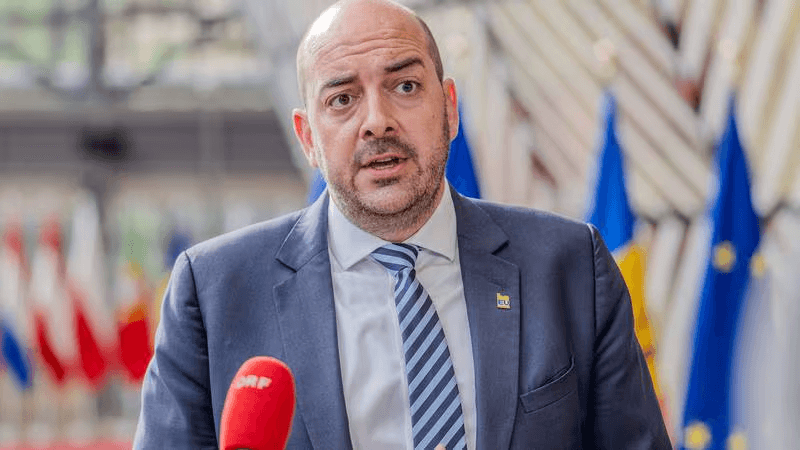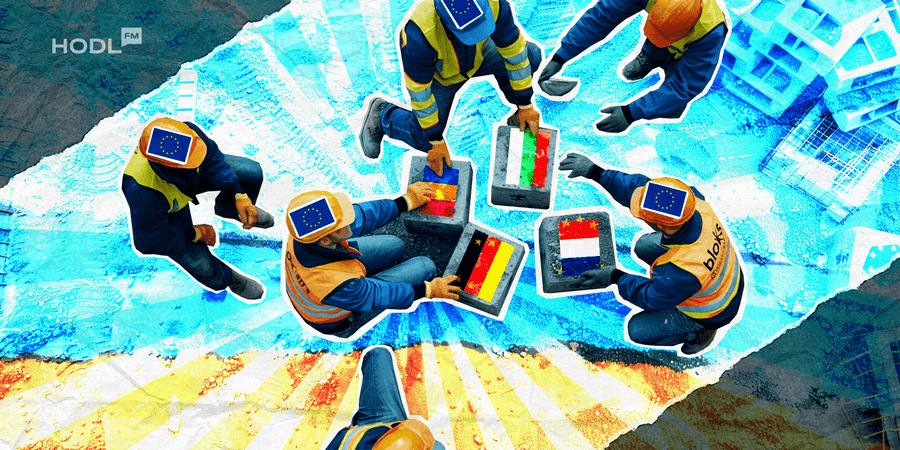The European Union has established a new organization called “Europeum” to develop blockchain infrastructure and reduce its reliance on U.S. technology. This initiative was announced during a telecommunications ministers’ meeting at the European Council in Brussels. Ten EU member states have agreed to assist in the implementation and operation of the Europeum blockchain. Let’s talk about what prompted this initiative and the improvements it promises for Europeans.
Related: Senate’s Crypto Policy Causes Friction as Biden Contemplates a Veto
The Creation Story
The development of the blockchain infrastructure has been ongoing since 2017, managed by an organization called the European Blockchain and Services Infrastructure. Representatives from the European Commission have confirmed that developers and companies have already created a functional prototype. However, due to the European Commission’s lack of legal authority to operate the blockchain for European citizens, the project remained in the pilot phase.
To address this, the project is now being transformed into the so-called European Digital Infrastructure Consortium, a multinational effort supported by the European Commission. This consortium falls under the European Digital Decade program, which aims to achieve its goals by 2030 with a budget of €165 billion.
Launch of Europeum
On Tuesday, the European Union unveiled a new organization aimed at implementing blockchain infrastructure to revolutionize data recording and transfer among the bloc’s 27 member states.
The launch took place during a telecommunications ministers’ meeting at the European Council in Brussels. Lawmakers also approved the landmark EU Artificial Intelligence Act.
Europe will have a tangible presence in the everyday lives of European citizens. The blockchain infrastructure will impact both individuals and businesses.
Mathieu Michel, Belgium’s State Secretary for Digitalization

According to Michel, this will allow citizens to track the origins of their products and enable businesses to protect their intellectual property by storing data in immutable blockchain networks.
Ten European member states, including Italy, Poland, and Greece, have agreed to assist in the deployment and operation of the EU’s blockchain. Other European nations will also have access to the blockchain infrastructure.
Germany and France have not committed to the agreement. However, the latter has shown support for the project, Michel told DL News earlier. Michel expects more countries to join soon.
Organization Purpose
The goal of the new organization is to record digital identities, wallets, credentials, and licenses on the Europeum blockchain. This initiative is a bold bid for EU sovereignty. Europe aims to create a new sovereign infrastructure rather than rely on Amazon Web Services for its telecommunications needs — essentially, an attempt to break free from global online commerce giants in the cloud computing sector.
Mathieu Michel envisions the blockchain infrastructure transforming legal and bureaucratic processes into efficiently automated smart contracts. Additionally, it aims to support metaverse applications and the European Central Bank’s digital euro.
People don’t need to be excited that Europeum exists. They just need to know that if countries, administrations, or companies are exchanging data, it can be used safely.
Michel remarked during an interview
Europe is banking on its blockchain to liberate itself from reliance on U.S. technology, aiming for a future where its digital infrastructure stands independently strong. This ambitious initiative reflects Europe’s determination to create a sovereign and secure digital ecosystem for its citizens and businesses.
More-More Info:
- The Impact of Political Events on Crypto Market
- Super Bowl Biden’s Meme Wasn’t About Bitcoin!
- Trump-Labeled Wallet Turns Meme Token into Million-Dollar Goldmine
Disclaimer: All materials on this site are for informational purposes only. None of the material should be interpreted as investment advice. Please note that despite the nature of much of the material created and hosted on this website, HODL FM is not a financial reference resource and the opinions of authors and other contributors are their own and should not be taken as financial advice. If you require advice of this sort, HODL FM strongly recommends contacting a qualified industry professional.



